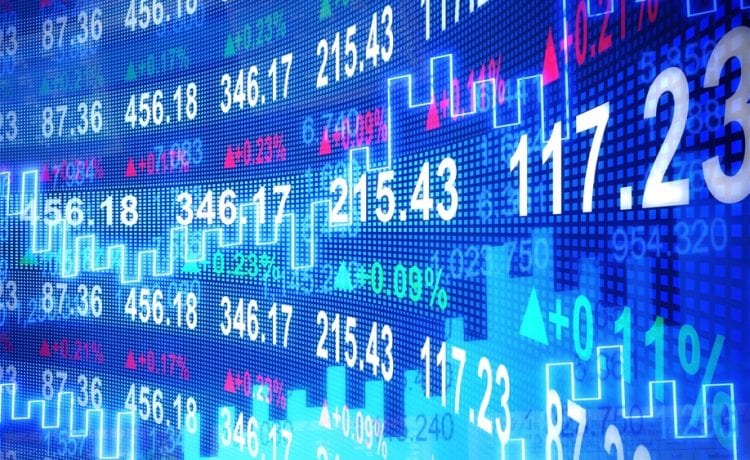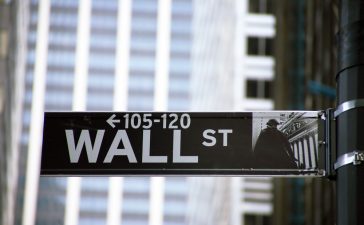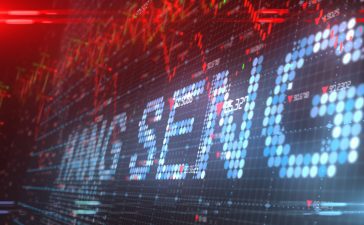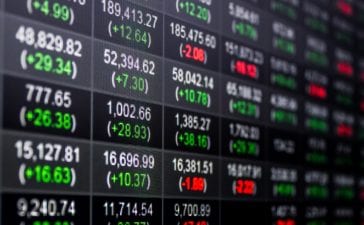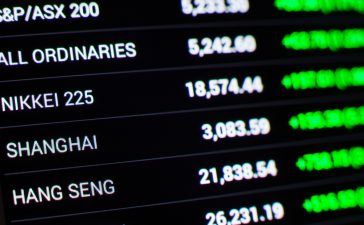Equity benchmarks started with sharp gains after the U.S. FDA granted “fast track” status to a pair of vaccine candidates produced by Pfizer and BioNTech SE
Stocks closed mostly lower Monday, with the Dow clinging to a modest gain, after technology stocks fell and rising coronavirus cases led California’s governor to order businesses across the state to shutter once again.
Equity benchmarks started with sharp gains after the Food and Drug Administration granted “fast track” status to a pair of vaccine candidates produced by Pfizer and German biotech firm BioNTech SE.
The Dow Jones Industrial Average, +0.04% eked out a 10.50 point gain, a rise of less than 0.1%, to end at 26,085.80. The Nasdaq Composite, -2.13% tumbled 226.60 points, or 2.1%, to close at 10,390.84, after setting a new intraday record at the start of trading. The S&P 500, -0.93% fell 29.82 points, or 0.9%, to finish at 3,155.22.
Stocks rose in thin trade last week, with tech stocks firmly in the lead. The Nasdaq on Friday scored its third consecutive record close and logged a 4% weekly rise ending Friday at 10,617.44. The Dow saw a 1% weekly rise to 26,075.30, while the S&P 500 advanced 1.8% for the week to 3,185.04. Friday’s session, meanwhile, saw the lowest daily volume since Feb. 21, according to Dow Jones Market Data.
A rally in technology and tech-related companies that propelled the Nasdaq Composite to a new intraday high on Monday faded in afternoon trade, leaving the benchmark and S&P 500 index both firmly in negative territory at the closing bell.
The Nasdaq still is up 15.8% in 2020, even as the S&P 500 was modestly negative for the year. But major equity benchmarks took a breather Monday, after an initial rally sparked by the Food and Drug Administration granting Pfizer Inc., +4.07% and BioNTech SE, +10.54% accelerated status on two of their COVID-19 vaccine candidates. Shares of Pfizer closed up 4.1%, while those of BioNTech rose 10.6%.
I don’t think we’re out of the woods at all, said John Carey, director of equity income U.S. at Amundi Pioneer, in an interview. Even if you get a vaccine, it will take a while, he said of widespread adoption that could eventually lead to immunity against the viral outbreak.
California also took a U-turn on Monday afternoon, with Gov. Gavin Newsom ordering every county in the state to shutter bars, indoor dining, movie theatres and wineries, while the state grapples with soaring COVID-19 cases.
Earnings season also kicks off this week. The bar has been set remarkably low as investors largely write off second-quarter earnings, devastated by the pandemic. That’s why analysts will be watching results for clues to a third- and fourth-quarter rebound that sceptics say might be difficult to fulfil if the coronavirus spread continues unabated.
The market is certainly hyperfocused on the development of treatments around COVID-19 and around vaccines. That’s becoming the number one driver of this market, even more than stimulus was over a month ago, said Matthew Miskin, co-chief investment strategist at John Hancock Investment Management.
The aggregate blended year-over-year growth estimate for earnings per share, which includes some earnings already reported and the average analyst estimates of coming results, is negative 44.6% as of Monday morning, according to FactSet.
Stocks had been shaking off a renewed rise in the number of coronavirus cases, which have surged across much of the Sun Belt, even though analysts have been warning that the resurgence threatens to slow, if not derail, the rebound in economic activity if officials reinstate lockdown measures.
New York Gov. Andrew Cuomo on Monday also issued an emergency health order that requires all travellers to New York from high-COVID states to provide location details or face a summons and $2.000 fine, while also outlining a formula to reopen New York schools in the fall that will require infection rates to be below 5% based on 14-day averages.
We’re not going to use our children as guinea pigs, Cuomo said.
Investors also have been keeping an eye on threats of renewed U.S.-China tensions. President Donald Trump on Friday said there was no scope for a phase-two agreement on trade between the two countries, saying Washington’s relationship with China had been “severely damaged” by the coronavirus pandemic, which the administration has sought to blame on Beijing. China’s move to crack down on Hong Kong with the passage of strict new national security laws has also raised tensions.
Meanwhile, Dallas Fed President Robert Kaplan said U.S. economic growth is slowing after initial burst in May, while speaking at the National Press Club.
In Asia, the Shanghai Composite, -0.83% rose 1.8%, while the CSI 300 Index, -0.92% advanced 2.1%. Japan’s Nikkei 225 Index, -0.86% rose 2.2%, while the Hang Seng Index in Hong Kong, -1.22% edged up 0.2%.
In Europe, the pan-European SXXP, -1.10% Stoxx 600 Europe Index finished 1% higher, while London’s FTSE 100, -0.85% gained 1.3%.
The yield on the benchmark 10-year Treasury note, 0.625% rose half a basis point to 0.638%. Yields and bond prices move in opposite directions. The ICE U.S. Dollar Index, 0.12%, a measure of the currency against a basket of six major rivals, was off 0.1%.
Oil futures ended lower, with the U.S. benchmark CL.1, -1.52% off 1.1%, or 45 cents, to finish at $40.10 a barrel after The Wall Street Journal over the weekend said Saudi Arabia was pushing OPEC and its allies to ease production curbs beginning in August. Gold, -0.63% futures ended up 0.7% to settle at $1,814.10 an ounce.

